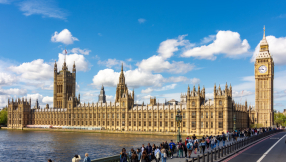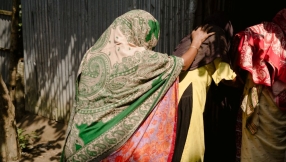Archbishop's Sharia comments draw heavy criticism
Speaking to the BBC on Thursday, the Archbishop called for a "constructive accommodation" for Muslims in areas relating to marriage, divorce, custom and inheritance, pointing to the fact that other religious communities already enjoy the accommodation of their laws in Britain.
Sharia is the body of Islamic religious law based on the teachings of the Koran and the Prophet Mohammad, and which has developed over centuries to incorporate the rulings of Islamic scholars.
Asked if the adoption of Sharia was necessary for community cohesion, Dr Williams said: "It seems unavoidable.
"Certain conditions of Sharia are already recognised in our society and under our law, so it is not as if we are bringing in an alien and rival system."
Prime Minister Gordon Brown's office has distanced itself from the Archbishop's comments, however. Mr Brown's spokesman stressed that the Prime Minister "believes that British laws should be based on British values", according to the BBC.
Home Office Minister Tony McNulty said: "To ask us to fundamentally change the rule of law and to adopt Sharia law, I think, is fundamentally wrong."
Culture Secretary Andy Burnham joined the chorus of condemnation, saying, "You cannot run two systems of law alongside each other. That would be a recipe for chaos."
Criticism also came in from other parties. The Conservative Community Cohesion Minister Baroness Warsi told the BBC, "Dr Williams seems to be suggesting that there should be two systems of law, running alongside each other, almost parallel, and for people to be offered the choice of opting into one or the other. That is unacceptable."
Liberal Democrat leader Nick Clegg agreed that Britain should not set up different laws for different people.
"Equality before the law is part of the glue that binds our society together. We cannot have a situation where there is one law for one person and different laws for another," he said.
"There is a huge difference between respecting people's right to follow their own beliefs and allowing them to excuse themselves from the rule of law."
The chair of the Equality and Human Rights Commission, Trevor Phillips, went further in his criticism, warning that the "implication that British courts should treat people differently based on their faith is divisive and dangerous".
Mohammed Shafiq, the head of the Ramadhan Foundation, was positive about the Archbishop's comments.
"Sharia law for civil matters is something which has been introduced in some western countries with much success," he said.
"I believe that Muslims would take huge comfort from the government allowing civil matters to be resolved according to their faith."
Dr Williams stressed that he was not endorsing the wholesale adoption of Sharia or the practical manifestations of the legal system as seen in some countries such as Saudi Arabia and Iran, where murderers and drug traffickers are publicly beheaded or hanged.
"Nobody in their right mind would want to see in this country the kind of inhumanity that has sometimes been associated with the practice of the law in some Islamic states, the extreme punishments, the attitudes to women," he said.
Safeguards would be necessary, he stressed.
"I think it would be quite wrong to say that we could ever licence so to speak a system of law for some communities which gave people no right of appeal, no way of exercising the rights that are guaranteed to them as citizens in general."
Muslims should have a choice in legal disputes over marriage and financial matters, Dr Williams said.
"There are ways of looking at marital dispute, for example, which provide an alternative to the divorce courts as we understand them. In some cultural and religious settings they would seem more appropriate."













